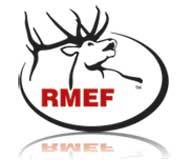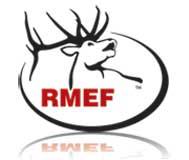
The Rocky Mountain Elk Foundation has provided $386,080 in grant funding to 18 Montana counties, to help improve over 22,000 acres of wildlife habitat. Prescribed burning, meadow restoration, and noxious weed treatments are just a few of the projects that will be funded by the grant to enhance elk, and other wildlife, habitat.

MISSOULA, Mont.—Grant funding provided by the Rocky Mountain Elk Foundation will improve 22,065 acres of wildlife habitat across 18 Montana counties.
The 2015 grants total $386,080 and directly impact Beaverhead, Broadwater, Carbon, Deer Lodge, Jefferson, Flathead, Lewis and Clark, Lincoln, Madison, Missoula, Petroleum, Powder River, Powell, Rosebud, Sanders, Stillwater, Sweetgrass and Teton Counties. There are also several projects of statewide and regional benefit.
“Prescribed burning, meadow restoration and noxious weed treatments are just a few of the many projects funded by these grants that will enhance habitat for elk and other wildlife,” said David Allen, RMEF president and CEO. “In addition, wolves continue to remain well above minimum objectives and this funding will help managers better determine how many wolves are on the landscape and where they’re located so they can be better managed.”
Allen thanked Montana volunteers who raised funds for the on-the-ground projects through banquet activities, membership drives and other fundraising efforts. He also thanked RMEF volunteers and members around the country for their dedication to ensuring the future of elk, elk country and our hunting heritage.
Since 1985, RMEF and its partners have completed 841 conservation and hunting heritage outreach projects in Montana with a combined value of more than $146 million. These projects have protected or enhanced 769,282 acres of habitat, of which 226,954 acres have been opened or secured for public access.
Here is a sampling of Montana’s 2015 projects:
Petroleum County—Conduct the largest prescribed burn carried out by the Bureau of Land Management in Montana to date on 6,700 acres of BLM and private lands northeast of Winnett to reduce conifer and juniper encroachment into native grass and sagebrush prairie thereby increasing production and diversity of forbs for elk and lowering the risk of high-severity, stand replacement wildfires. Mule deer, pronghorn, wild turkeys and other wildlife also benefit.
Powell County—Enhance native grasses, forbs and shrubs, and promote aspen regeneration in a transition area between grasslands and dry timber stands on the Helena National Forest approximately 10 miles west of Lincoln. Treatments include 335 acres of thinning/burning and 400 acres of weed treatments (with some overlap).
Stillwater County—Treat approximately 250 acres of noxious weeds on federal, state and private lands within the Upper Stillwater River Watershed. The project is coordinated by the Stillwater Valley Watershed Council and involves many landowners through a cost-share program; combining efforts to cooperatively control noxious weeds across a 184,000-acre landscape (also affects Carbon County).
Western Montana—Provide $50,000 in funding to assist Montana’s wolf management plan. The funding, $25,000 to Montana Fish, Wildlife and Parks and $25,000 to the U.S. Fish and Wildlife Service, provides for additional collaring of wolves to expand the science related to wolf pack locations, size and home ranges as well as resolving wolf conflicts associated with livestock depredation.
Go here to see a complete listing of Montana’s 2015 projects.
Partners for the Montana projects include the Beaverhead-Deerlodge, Custer, Flathead, Gallatin, Helena, Kootenai, Lewis and Clark, and Lolo National Forests, Bureau of Land Management, Montana Fish, Wildlife and Parks, private landowners and various sportsmen, wildlife, civic, and government organizations.
|
About the Rocky Mountain Elk Foundation: Founded over 30 years ago, fueled by hunters and a membership of more than 205,000 strong, RMEF has conserved more than 6.6 million acres for elk and other wildlife. RMEF also works to open and improve public access, fund and advocate for science-based resource management, and ensure the future of America’s hunting heritage. Discover why “Hunting Is Conservation™” at www.rmef.org or |


